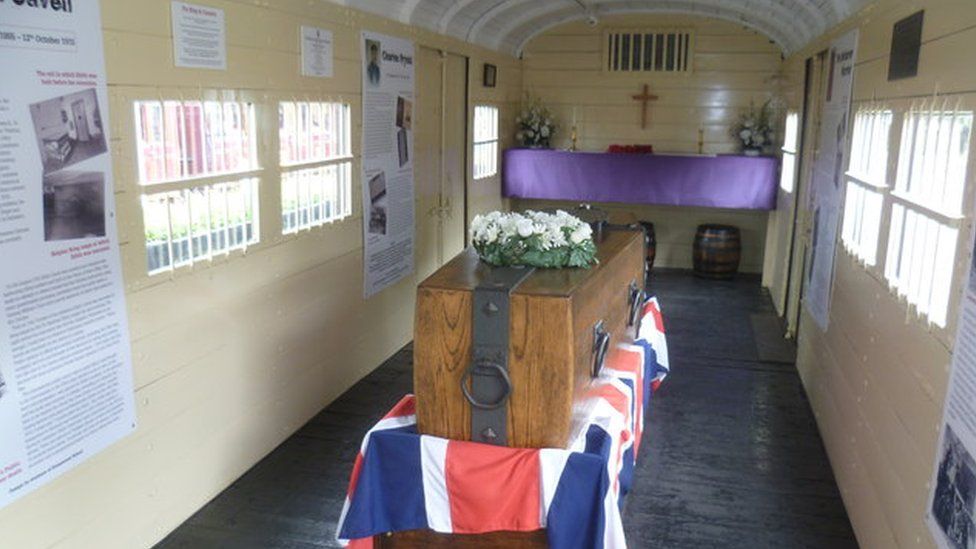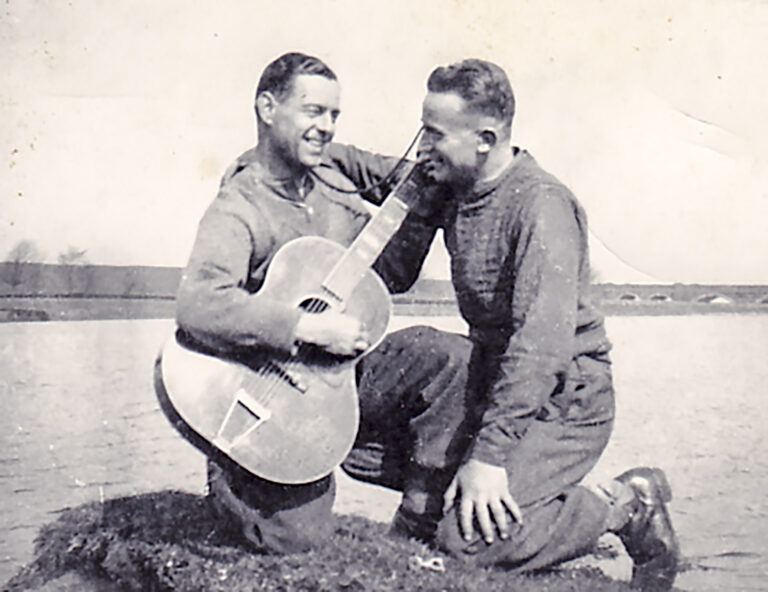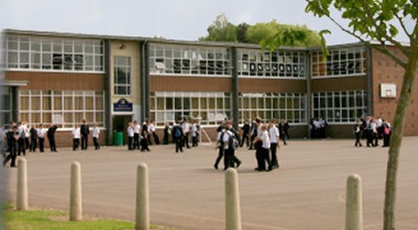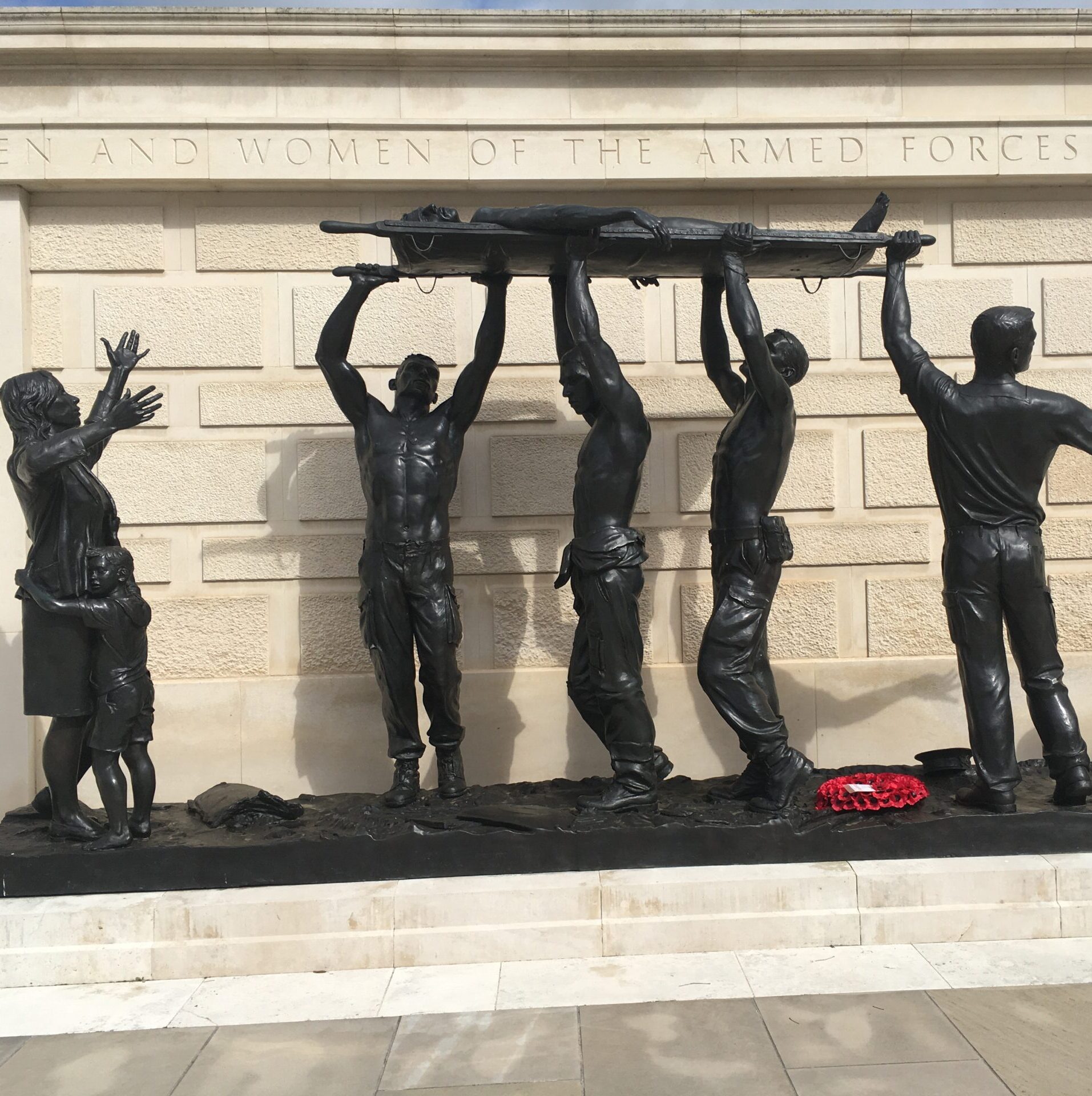I wrote this a year ago after watching the service for the Unknown Warrior in Westminster Abbey, which moved me deeply.
Last year was the 100th anniversary of the burial of the unknown soldier in the Abbey. I doubt we can fully comprehend the depth of national grief in Britain following the first World War. Even two years after the end of the conflict, the nation was still grieving. Almost a million servicemen had been killed leaving widows, children and family to mourn. Thousands were buried in anonymous graves, adding to the sense of loss. David Railton, an army chaplain on the Western Front, knew first hand the agony of loved ones as he received their letters pleading for information about their son, husband or father. Here’s an extract from his own account.
“I came back from “the line” at dusk. We had just laid to rest the mortal remains of a comrade. I went to a billet in front of Erkingham, near Armentieres. At the back of the billet was a small garden and in the garden, only about six paces from the house, there was a grave. At the head of the grave there stood a rough cross of white wood. On the cross was written in deep black pencilled letters “An unknown British Soldier” and in brackets underneath “of the Black Watch”. It was dusk and no one was near except some officers in the billet playing cards. I remember how still it was. Even the guns seemed to be resting, as if to give the gunners a chance to have their tea.
“How that grave caused me to think! I love every inch of Scotland. I had served in the earlier days as a private soldier in the ranks of a Scottish Territorial battalion. How I wondered! How I longed to see his folk! But, who was he, and who were they? From which of the lonely mystic glens of old Scotia did he come? Was he a citizen of “Auld Reekie”? Was he one of the grand old “Contemptibles”? Was he just a laddie – newly joined – aged eighteen, the only son of a shepherd from the far away Highlands? There was no answer to those questions nor has there ever been yet.
“So I thought and thought and wrestled in thought. What can I do to ease the pain of father, mother, brother, sister, sweetheart, wife and friend? Quietly and gradually there came out of the mist of thought this answer clear and strong, “Let this body – this symbol of him – be carried reverently over the sea to his native land”.
We still don’t know the identity of the Unknown Warrior buried in Westminster Abbey, but it provided an emotional connection for those with no grave to visit, no place to go; a catalyst for remembrance and grief. When the train carried his coffin from Dover to London, hundreds of thousands lined the tracks and packed the stations, just to catch a glimpse of the carriage where he lay as it passed. Many felt quite certain the body inside was their particular loved one. Of course the chances of this were astronomically remote for a particular mother, father or wife, but he belonged to someone, who perhaps was among the thousands standing in silence as the train went by. In a symbolic sense this unknown soldier was related to all those who grieved.
During the service I reflected on the billions of unremembered lives, the millions who died unknown to friends or family, and not only in war. I thought of those who died as disciples of Jesus Christ, in defence of his gospel but are now forgotten, dying in obscurity and never recorded. Some were unknown even in their own lifetime. But not unknown or unremembered by our Heavenly Father.
I viewed the service for the Unknown Warrior on the morning of the 11th November last year. In the afternoon I attended the funeral for Brian Robinson. In the Spring of 1957 I went to church for the first time with my parents and four year-old sister Lesley. It was a large converted terrace house at 15, Stockton Road, Middlesbrough now, sadly, demolished. Brian was there. He was twenty-six and I was ten, so we weren’t exactly mates, but he always took the trouble to speak to me. He was baptised at age ten too, long before me. Now that he’s dead, I may be the last surviving member of the 1950s Stockton Road Branch. Yesterday I celebrated my three-quarters of a century of life, and the clock continues to tick. When I go, will anyone remember any of us? Hopefully there will be a large group of us in heaven, chatting about the old times on earth and not really bothered much whether we are remembered by those still in mortality who will, in the blink of an eye, join us in eternity. Happy thoughts.



